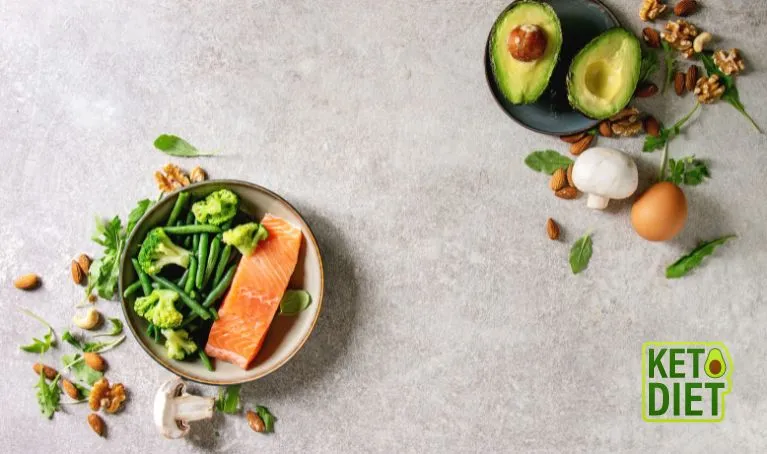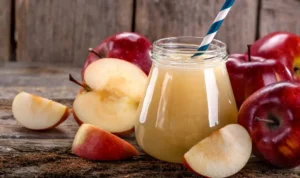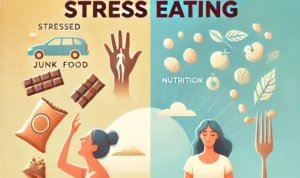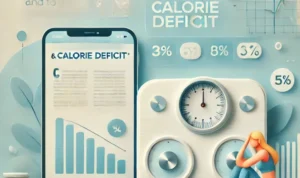Table of Contents
ToggleEver heard of the keto diet? It’s been taking the world by storm, promising rapid weight loss and a new way to fuel your body. But what exactly is it, and is it right for you? This complete guide will answer all your questions and help you decide if the keto lifestyle is for you
WHAT IS KETOGENIC DIET
“Ketogenic diet commonly referred to as keto diet is the diet that is low in carbohydrates and high in fats and ultimately helps the body burn its fats.”
The main energy and fuel source of body i.e., carbohydrates when replaced by fats causes the body to reduce weight by consuming the fats and breaking them down for energy source and performing normal day body functions.
BASIS OF KETOGENIC DIET:
The whole mechanism of this trending diet is based on the consumption of a high-fat diet that will serve as an alternative to the energy provided by carbohydrates. As soon as the body consumes carbohydrates, the body converts them into glucose.
This glucose is then used up to perform the body’s actions, metabolism, and growth and also stored for the future. When consumed in excess glucose is converted to triglycerides and deposited in the form of fats in the adipose tissue which leads to obesity.
To burn this unnecessary fat, one must consume fats in high quantities so that the body doesn’t get carbs. This shift usually comes after two to four days of eating carbs less than 20 to 40 grams per day. The fat cells are broken down into ketone bodies which is known as the process called ketosis.
COUNTING THE MACROS:
While following a keto diet, the macros are calculated as follows, carbs in minimum quantity, protein in moderate amounts, and as much fats as you can to make you feel stuffed and full.
CARBOHYDRATES
Less than 15 to 20 grams per day of carbohydrates must be included in the diet. Although it may lead to serious ketosis you may follow it for a very limited period of time
PROTEINS
A total of 20 to 30 percent calories from proteins that make roughly 70 grams of proteins per day is required for normal body functioning including metabolisms, growth, and maintenance.
Hand-Picked Content: 120g Protein Plan for a Day of High Physical Activity
FATS
60 to 75 percent of calories contributed from fats are ideal for the keto diet. These may include foods like meat, coconut oil, and eggs.

TYPES OF KETO DIET
There are several types of keto diets being prescribed by the dietitians these days.
- The standard ketogenic diet (SKD); is the standard keto diet comprised of a high-fat, low-carb, moderate-protein diet and it is the standard being followed. It is most effective for weight loss but it may have complications like keto flue.
- The cyclical ketogenic diet (CKD); is the type of diet that alternates different amounts of carbohydrates throughout the week creating a carbs cycle that is helpful in workout sessions. This further may benefit muscle gain. The complications associated are a high risk of chronic kidney disease due to unusual load on kidneys.
- The targeted ketogenic diet (TKD); consists of nutrient intake but timing assisted. This helps you take carbs in minimum amounts but around the workout sessions like before or after the exercise to fuel up the body.
WHO CAN FOLLOW A KETO DIET
Keto diet basically was introduced as a therapeutic diet for patients with brain disorder like dementia, fits and Alzheimer’s disease. As brain needs glucose as energy source but sugars can cause serious complications and inflammation in the brain. Thus to avoid such complications, the fat source can be given as an alternate.
Apart from this patients suffering from diabetes mellitus and metabolic syndrome are also greatly benefited from keto diet leading to reduction metabolic biomarkers and risks of cardiovascular disorders.
Studies have now shown that the diet can have benefits for a wide variety of different health conditions:
- Heart disease: The ketogenic diet when followed rightly ultimately leads to reduction in blood cholesterol, HDL, blood sugar and blood pressure.
- Cancer: The ketogenic diet helps lowering the cancer growth by limiting the carbohydrate and glucose supply to the cancerous cells.
- Alzheimer’s disease: The progression of Alzheimer’s disease may be slowed down and symptoms may be reduced by the ketogenic diet.
- Epilepsy: Research shows significant reduction in seizures in epileptic children.
- Parkinson’s disease: The symptoms of Parkinson’s disease were improved by following ketogenic diet.
- Polycystic ovary syndrome: The ketogenic diet helps improves the insulin resistance in polycystic ovary syndrome.
- Brain injuries: Traumatic brain injuries can effectively be managed by administering ketogenic diet in serious brain injuries.
TIME DURATION:
‘Nothing is either good or bad but it is the use that makes it so’
Keto diet in itself can be beneficial but if continued for longer durations can lead to serious health complications including organ damage. The main organ affected is kidney that may cease to function if keto diet is followed for more than a week continuously. The load on kidneys increases as excess ketone bodies are produced as a result of fat breakdown. The kidneys have to go out of the zone to compensate such large number of ketones and hence lead to ketoacidosis. Another health complication is cardiovascular disease that may result from keto diet eing followed vigorously. Following a keto diet may lead to deficiency of some essential nutrients like vitamins and minerals that are obtained from carbohydrate sources.
Some common complications include:
- Low protein in the blood
- Extra fat in the liver
- Micronutrient deficiencies
- Kidney stones
FOODS ALLOWED
You should base the majority of your meals around these foods:
| FOOD GROUPS | FOODS ALLOWED |
| Meat | Red meat, steak, ham, sausage, bacon, chicken, and turkey |
| Fatty fish | Salmon, trout, tuna, and mackerel |
| Eggs | pastured or omega-3 whole eggs |
| Butter and cream | Grass-fed butter and heavy cream |
| Cheese | Unprocessed cheeses like cheddar, goat, cream, blue, or mozzarella |
| Nuts and seeds | Almonds, walnuts, flaxseeds, pumpkin seeds, chia seeds, etc. |
| Healthy fats | Extra virgin olive oil, and avocado oil |
| Avocadoes | Whole avocados or freshly made guacamole |
| Low carbs veggies | Green veggies, tomatoes, onions, peppers, etc. |
| Condiments | Salt, pepper, herbs, and spices |
FOODS PROHIBITED
Certain foods are prohibited while following keto diet:
Foods containing carbohydrates must be avoided.
| FOOD GROUPS | FOODS PROHIBITED |
| Sugary foods | Smoothies, cake, ice cream, soda, fruit juice, candy |
| Grains and starches | Rice, pasta, wheat-based products, cereal |
| Fruits | All fruit, except small portions of berries like strawberries |
| Beans and legumes | Peas, chickpeas , kidney beans, lentils, |
| Root tubers and vegetables | Potatoes, carrots, parsnips, sweet potatoes, |
| Low fat or diet products | Low fat mayonnaise and condiments |
| Sauces or condiments | Barbecue sauce, ketchup, honey mustard, teriyaki sauce, |
| Unhealthy fats | Processed, mayonnaise |
| Alcohol | Liquor, mixed drinks, beer, wine |
| Sugar-free diet foods | Sugar-free candies, sweeteners, desserts, syrups, puddings |
HEALTHY KETO SNACKS
- Olives
- One or two hard-boiled eggs
- Fatty meat or fish
- Cheese
- A handful of nuts or seeds
- Keto-friendly snack bars
- Strawberries and plain cottage cheese
- Celery with salsa and guacamole
- 90% dark chocolate
- Full-fat Greek yogurt mixed with nut butter and cocoa powder
- Bell peppers and guacamole
- Beef jerky
- Smaller portions of leftover meals
- Fat bombs
Also Read: Benefits of Drinking Olive Oil Before Bed
HOW DO YOU MAINTAIN A KETO LIFESTYLE (IN 2024)?
In this fast and furious world of 2022, it seems difficult to follow a keto diet and after all those health risks and concerns being highlighted above, people may think that they are risking their lives while following keto. There is also a rumor that this diet is unsustainable. BUT! Everything done in moderation and control is effective in long run and will lead to lesser disadvantages.
Despite all those restrictions of carbohydrates and sweet treats, you may still follow the diet freely and eat meals of your choices.
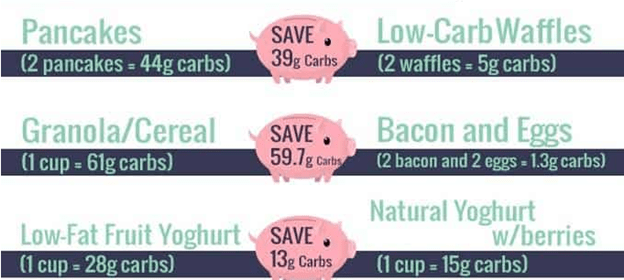
HOW TO MANAGE A KETO DIET
While designing a keto diet, the percentages for the macros should be under consideration. These will have a great impact on the results you want to achieve. There are certain tips and tricks that you might follow and will help you a lot while following a keto diet.
- Always go for the food labels as they will prove to be your companions here. Check for the amount of fats and carbohydrates present while buying the goods from market.
- Having your diet planned beforehand will help you save the time and energy.
- There are certain food websites, e books, blogs and most importantly dietitians that will help you build customized menu for you according to your body requirements and weight.
- Ready to eat keto meals are available by some meal delivery services to ease you.
- Frozen keto meals are available that will do wonders.
- You will have to manage your own meals while hanging out with friends or family at gatherings or parties.
SUPPLEMENTS FOR KETO DIET
There are certain supplements for the keto diet that are as follows;
- MCT oil or coconut oil: added to milk yogurt or tea, it will provide a boost to energy and also fat content. Tea can be made by adding MCT oil and cream to make it suitable for keto diet.
- Minerals like calcium, zinc and magnesium; will help body maintain its micronutrient reserves.
- Whey protein; providing a great source of [rotein to aintain body functions whil being on keto.
FINAL VERDICT
A ketogenic diet might be an interesting and appealing alternative to treat certain conditions and may accelerate weight loss. In addition to this it is hard to follow, and it can have larger quantities red meat, processed, and salty foods that are notoriously unhealthy. Suitable advice is to experiment with the diets and see what works best for you and your body. Prioritize ketosis, and we’re confident that no matter what your goals are, you’ll be happy with the results.

